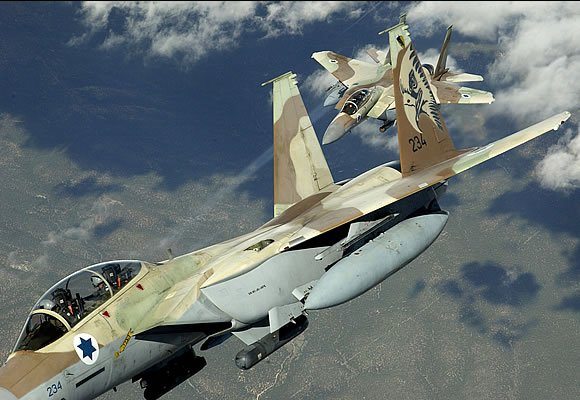Baghdad has warned Israel that it would respond to any attempts by the Jewish state to use Iraqi airspace for a strike against Iran’s controversial nuclear programme, a top Iraqi minister told AFP.
The remarks from Hussein al-Shahristani, deputy prime minister responsible for energy affairs, mark the first time a senior Iraqi official has publicly warned Israel against entering its airspace — the most direct route — to hit targets in Iran.
Shahristani also said that Iraq had received assurances from Washington that the United States would not use its airspace to attack Iran, which Western powers believe is trying to develop a nuclear weapon. Tehran has repeatedly denied the claim.
“The (Americans) have assured us that they will never violate Iraqi airspace or Iraqi sovereignty by using our airspace to attack any of our neighbours,” Shahristani said in an interview in his office in Baghdad’s heavily-fortified Green Zone.
“We have also warned Israel that if they violate Iraqi airspace, they will have to bear the consequences.”
The minister said that the issue had been discussed in Iraq’s national security council, and the warning had been passed to Israel “through countries that they have relations with”.
Asked how Iraq would react to any such Israeli attempt to target Iran’s nuclear programme, Shahristani said: “Obviously, Iraq wouldn’t be disclosing its reaction, to allow Israel to take that into account.”
Western powers led by Washington along with Israel are at loggerheads with Iran over allegations that its nuclear programme is aimed at developing an atomic weapon.
Tehran has repeatedly rejected the charges, and in turn accuses its arch-foes Israel and the United States of waging a deadly campaign of sabotage against its disputed nuclear programme, which it insists is for peaceful purposes.
Israel, the Middle East’s sole if undeclared nuclear-armed state, has refused to rule out military action against Iran.
Shahristani said a similar policy applied to the use of Iraq’s airspace for any military action in neighbouring Syria, where rebels have fought a bloody civil war against the regime of President Bashar al-Assad since 2011.
Iraq has sought to avoid publicly taking sides between Assad and those opposed to his rule, fearful of a violent spillover of the conflict in Syria, with which it shares a 600-kilometre (375-mile) border.
But Baghdad has been accused by the United States of turning a blind eye to Iranian flights through its airspace carrying military equipment for Assad’s regime.
International powers have imposed biting sanctions on Iran in a bid to force it to cooperate and open up its nuclear programme for more invasive investigations, but Shahristani said that because of Iraq’s economic ties with its eastern neighbour, it would only abide by UN sanctions, and not those implemented by Washington and Europe.
He pointed in particular to Iraq’s need for gas imports from Iran in order to fuel its power stations, with the country attempting to rebuild its badly-damaged electricity infrastructure.
“Iraq has its own national interest,” he said. “Power generation is very critical … and there is no way we can fuel our new power stations, that are being constructed and will be ready before the end of the year, without having gas from Iran.”
“We expect the US, as our ally, to understand the need of the Iraqi people for power generation. If any friend can make the gas available from other sources, by all means, we would be very happy to consider that option.”
“But, given our geographical location, the only gas available to Iraq is from Iran now, and we have explained this to our American friends.”
He added that Iraq had held talks earlier this year with Syria and Iran for a gas pipeline that would go from Iran through Iraq to Syria, but no funds or timeline had been agreed for the proposed project.
Another pipeline carrying gas from Iran to supply power stations in Baghdad and central Iraq is under construction, he said.









